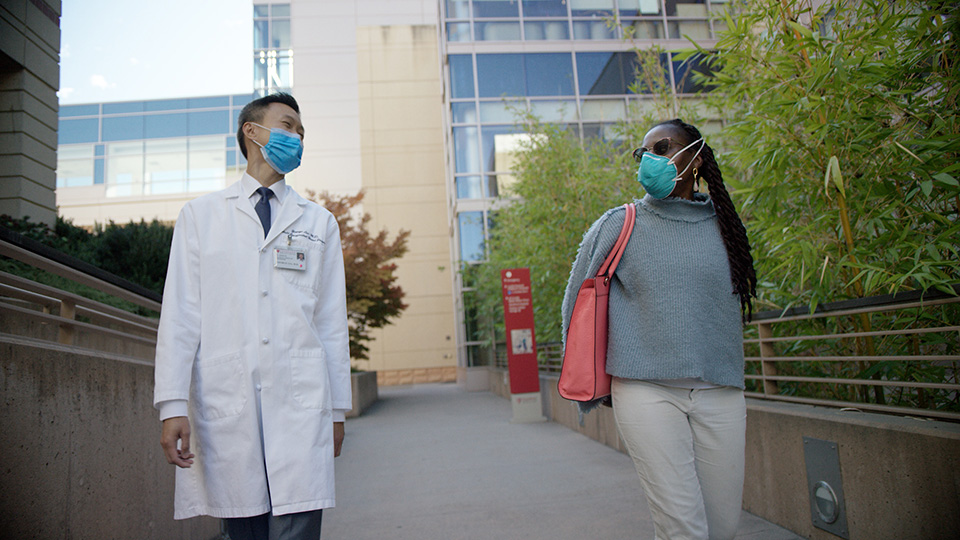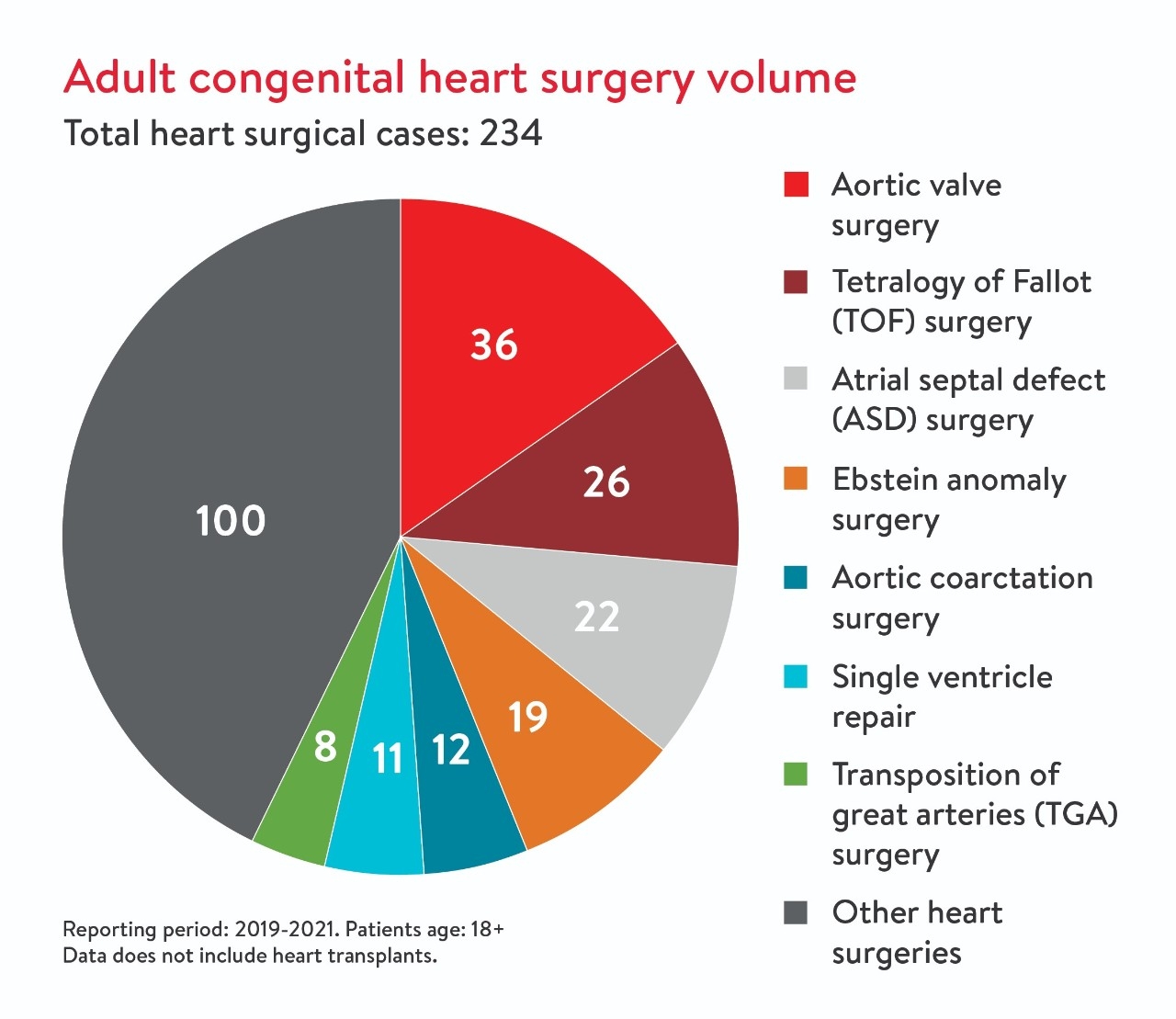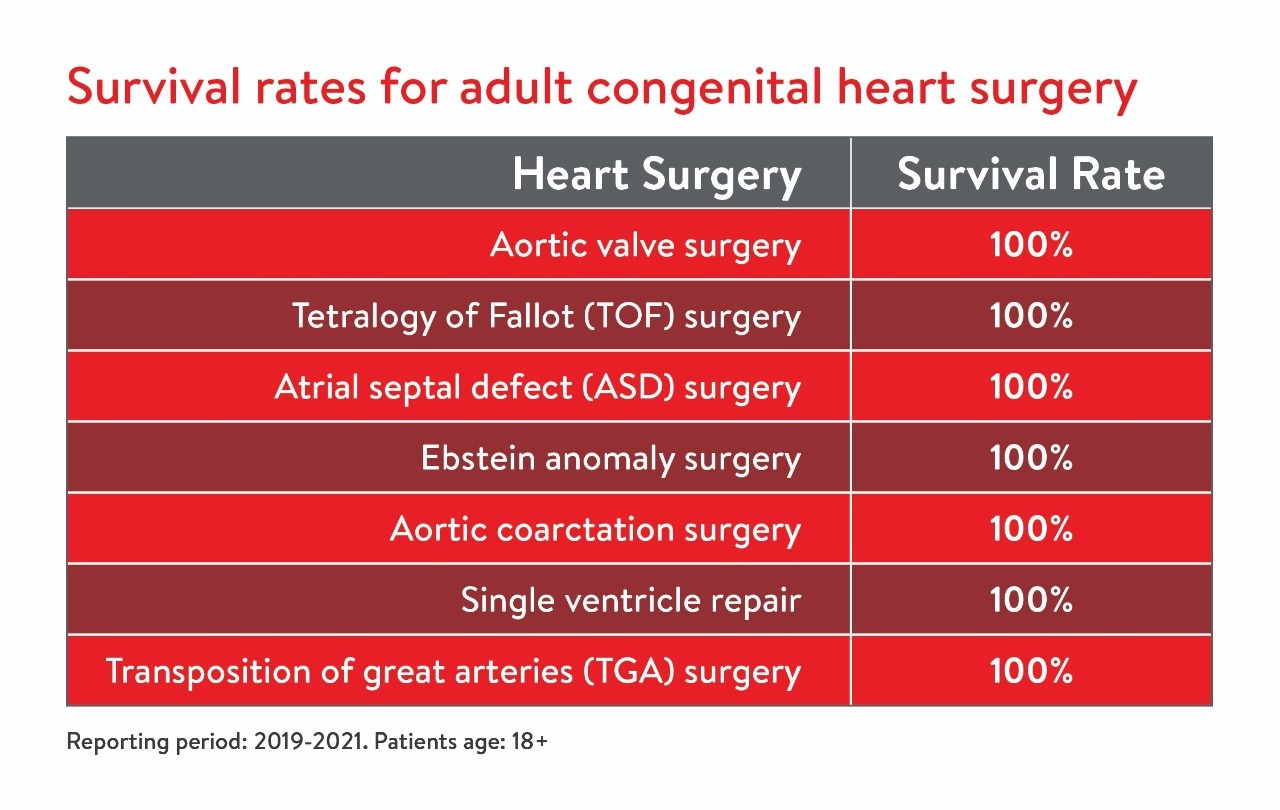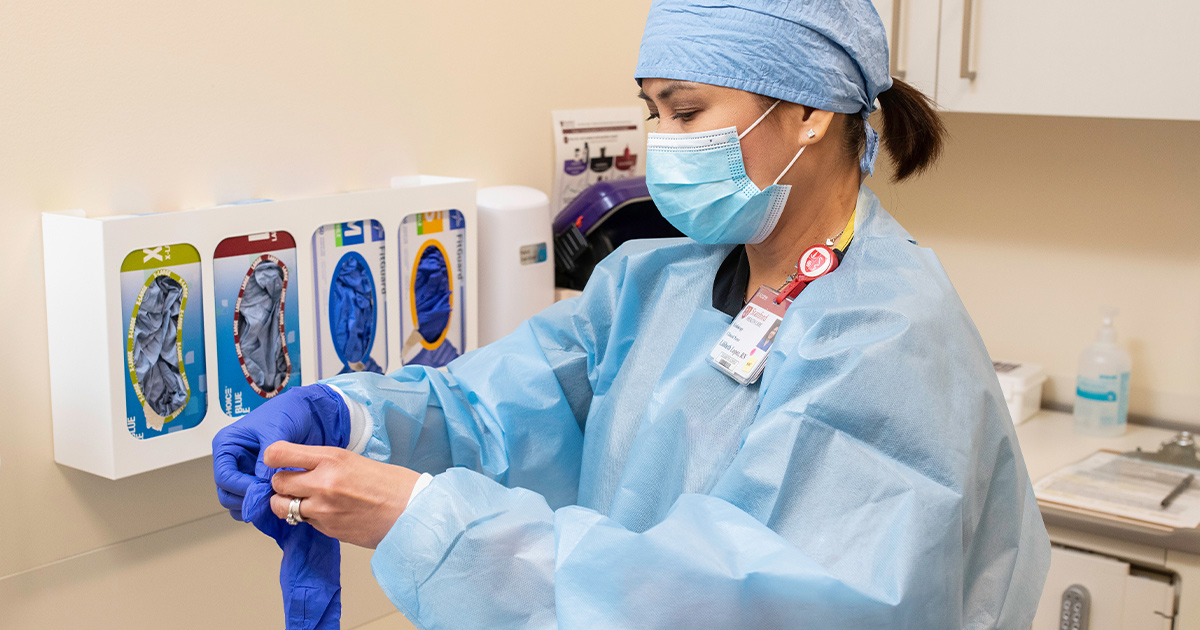Our Patients
Heart Care Empowers Uduak to Take Her Life Back
Heart care at Stanford Health Care allowed Uduak to take her life back and return to the things she loves, like gardening, painting, and running.

Multidisciplinary Care of ACHD
The ACHD Program provides comprehensive care to patients with ACHD. Our multi-disciplinary team focuses on adult care and support for patients with ACHD.
300 Pasteur Drive
3rd Floor, A32
Stanford, CA 94305
Phone: 650-724-9220
We offer patients comprehensive diagnostics, lifestyle counseling, medical management, and interventional and surgical treatments for the full spectrum of conditions related to congenital heart defects. All of our cardiologists are board certified in adult congenital heart defects. We work with our referring providers to ensure that their congenital heart patients are managed in a sub-specialized and collaborative environment that offers the best specialty treatment options available.
HEART DISEASE IS PREVENTABLE.
The Adult Congenital Heart Program at Stanford specializes in treating adults who were born with congenital heart defects. Although most patients will have undergone corrective surgery, some may not have been previously treated, or may have recently discovered complex residual conditions requiring therapy involving drugs, interventional procedures, or surgery.
The Adult Congenital Heart Program at Stanford offers:
The Adult Congenital Heart Program at Stanford—a collaboration between Stanford Children's Health and Stanford Health Care—is an Adult Congenital Heart Association (ACHA) Adult Congenital Heart Disease (ACHD) Accredited Program. This makes the Adult Congenital Heart Program a premier comprehensive care center in the U.S. for congenital heart defect patients.
Our program focuses on a smooth transition from pediatric cardiology to adult heart care that continues to provide comprehensive, ongoing care to adult patients throughout their life.
Accreditation by the ACHA ACHD acknowledges that a center has the capability to bring high quality of care to congenital heart diseaes patients. This includes:
We also offer a Patient and Family Advisory Council (PFAC) to provide an ongoing level of support and quality of care to patients and their families.
The Adult Congenital Heart Program at Stanford treats the full spectrum of pediatric and adult congenital heart diseases. To learn more about pediatric congenital heart diseases, visit Stanford Children's Health.
Present at birth, a coronary artery that has an abnormality or malformation, most often related to the origin or location of the coronary artery.
The narrowing of the aortic valve in the heart which restricts blood flow through the valve and forces the heart to contract harder to pump blood into the aorta.
Arrhythmias can pose serious threats to people with congenital heart disease. Supraventricular arrhythmia is the most frequent problem, with a lower incidence of ventricular arrhythmia.
A congenital heart defect involving a narrowing of the aorta.
A malformation of the tricuspid valve (located between the upper and lower chambers on the right side of the heart) into the right bottom chamber of the heart (or right ventricle).
A congenital heart defect condition which causes blood flow from the left side of the heart to the right side of the heart and progresses over time as a result of the effects of high blood pressure in the lungs.
A congenital heart defect that occurs due to abnormal development of the fetal heart during the first 8 weeks of pregnancy. Because of the improper development of the fetal heart, the left or right ventricle may be underdeveloped.
A defect in the structure of the heart and associated vessels, present at birth.
The Adult Congenital Heart Program at Stanford has quickly grown to have some of the highest surgical volumes in the country, demonstrating our experience and superior outcomes.


The 30-day survival rates above reflect adult congenital heart surgeries performed from 2019-2021.
Through our research on genetics, imaging and clinical and surgical outcomes of adults with congenital heart disease, we aim to better understand the underlying causes and provide the best possible treatment options for our patients. We participate in multicenter trials across North America and internationally to further knowledge in the care of our patients.
All of our team members are involved in a variety of research projects. Visit our faculty profiles to learn more about research within the Divisions of Pediatric Cardiology and Cardiovascular Medicine at Stanford University School of Medicine.
The Adult Congenital Heart Program at Stanford treats the full spectrum of pediatric and adult congenital heart diseases. To learn more about pediatric congenital heart diseases, visit Lucile Packard Children's Hospital.
A procedure in which a damaged aortic valve is replaced with a donor valve.
A procedure in which a damaged aortic valve is replaced with a valve from a human or animal, or a mechanical valve.
A cardiac catheterization procedure in which a small is inserted into a blood vessel in the groin and guided to the inside of the heart where the balloon is inflated to stretch an obstructed artery open.
A procedure that removes blood from the body.
A less invasive procedure for patients with severe aortic stenosis, using an artificial aortic valve.
Surgical treatment to repair or replace the tricuspid valve.
A surgical release of scar tissue within the aortic valve that is preventing the valve from opening properly.
A section of the patient's own pulmonary artery with the pulmonary valve intact is used to replace the aortic valve and a section of the ascending aorta.
Clinical trials are research studies that evaluate a new medical approach, device, drug, or other treatment. As a Stanford Health Care patient, you may have access to the latest, advanced clinical trials.
Open trials refer to studies currently recruiting participants or that may recruit participants in the near future. Closed trials are not currently enrolling, but similar studies may open in the future.

View All {0} Adult Congenital Heart Disease Cardiologists »
Stanford is an Academic Medical Center, which is a type of hospital setting where doctors teach the entire spectrum of medical education. Students range from beginning medical students to fully licensed and practicing doctors completing advanced sub-specialty training. Stanford Medicine is a partnership between Stanford University School of Medicine and Stanford Health Care. Since Stanford is a teaching hospital, you can expect to meet many providers and providers in training.

Our skilled physician assistants (PAs) and nurse practitioners (NPs) have special training in diagnosing and treating adult congenital heart disease. They see patients independently as well as with a doctor. APPs can give you an exam, write prescriptions, and help prevent or treat many issues.

At Stanford, we take care of the details so that you can focus on your health and wellness. We offer a wide range of support services to promote healing and improve your quality of life.
Heart care at Stanford Health Care allowed Uduak to take her life back and return to the things she loves, like gardening, painting, and running.
Today there are more adult survivors of congenital heart disease than children with congenital heart disease. A new report offers guidance on other organs that can be impacted by congenital heart disease.
Depending on your insurance coverage, most often the services are covered if you have been diagnosed with congenital heart disease. It is always best to check with your insurance company first.
If you need to reschedule your appointment for any reason, please call us at 650-724-9220. We appreciate a call at least one week prior to your new patient visit if your plans change for any reason.
The Adult Congenital Heart Program at Stanford Health Care offers a seamless transition from pediatric to adult oriented care with a specialized program specifically designed for adolescent and adult patients. Also, visit iheartchange.org to find resources for pediatric patients with congenital heart disease who are transitioning to adult care.
Stanford Health Care provides comprehensive services to refer and track patients, as well as the latest information and news for physicians and office staff. For help with all referral needs and questions, visit Referral Information.
You may also submit a web referral or complete a referral form and fax it to 650-320-9443 or email the Referral Center at ReferralCenter@stanfordhealthcare.org.
Patients benefit from receiving quality coordinated care offered by our multidisciplinary team. Through evidence-based practice and research, our team works together to promote the best healing environment at Stanford Health Care.
To refer a patient, call us at 650-724-9220. Fax a referral form with supporting documentation to 650-320-9443.
To request an appointment with an adult congenital heart specialist, please call 650-724-9220.